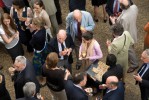March – Invited lecture “Lipids as Potential Anti-Cancer Drugs”
Professor U.N. Das MD FAMS, Editor in chief of “Lipids in Health & Disease”, gave a lecture at the National Institute of Pharmaceutical Education and Research (NIPER), Hyderabad on March 19 2012, under RSC-DS.
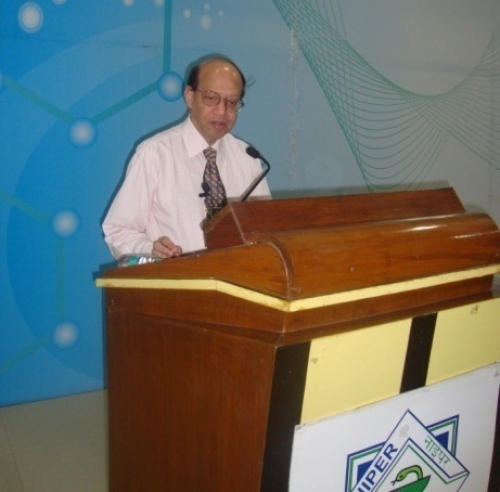
“Dr Das spoke about their research studies: he mentioned that incubation of cells with polyunsaturated fatty acids (PUFAs) induced apoptosis of tumour cells, and augmented free radical generation and formation of lipid peroxidation products selectively in tumour cells compared to normal cells. This increase in free radical generation and lipid peroxidation occurred despite the fact that the uptake of PUFAs was at least 2 to 3 times higher in the normal cells, compared to tumour cells. GLA induced apoptosis of tumour cells, caused DNA strand breaks, decreased the anti-oxidant content of tumour cells, and suppressed the expression of oncogenes ras and Bcl-2, whilst enhancing that of p53.
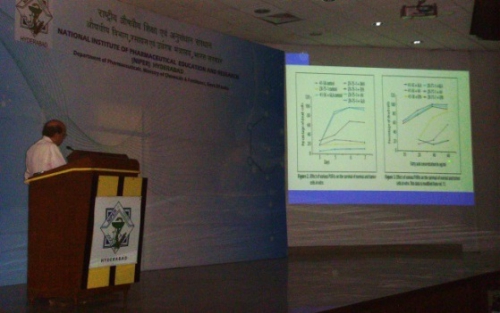
In a preliminary open label clinical study, it was noted that anti-tumour injections of GLA regressed glioma tumours and enhanced the survival of these patients for more than 2 years, which was considered significant without any significant side effects.
Around 150 delegates including NIPER students and staff, and those from other universities and nearby industry R&D scientists attended the lecture, which concluded with a question and answer session at the end of the lecture.
March – Guest Lecture “Is Type II Diabetes Mellitus a Brain Dis-order”
Professor U.N. Das spoke at the School of Pharmaceutical Sciences, Anurag Group of Institutions, Hyderabad, on the 22
nd March 2012 on the subject: “Is Type II Diabetes Mellitus a Brain Dis-order”.
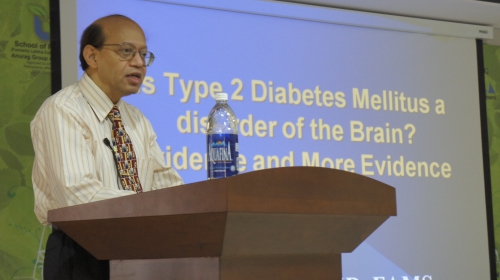
“Dr Das Spoke about type II diabetes mellitus (DM): it is characterized by an increase in pro-inflammatory cytokines, a decrease in the concentrations of endothelial nitric oxide (eNO) and adiponectin, and an alteration in hypothalamic peptides that control satiety and hunger regulated insulin secretion. Polyunsaturated fatty acids, (PUFAs) that decrease HMG-CoA reductase and ACE, augment eNO synthesis, modulate vascular tone, and potentiate insulin action both in the peripheral tissues and brain, are known to be decreased in maternal and foetal plasma and tissues. PUFAs are also known to modulate the actions of hypothalamic peptides, leptin, and adiponectin and suppress pro-inflammatory cytokines.
Thus, sub-optimal maternal and foetal plasma and tissue concentrations of PUFAs lead to low-grade systemic inflammation, seen in type II DM, which may be aggravated by consumption of a high energy diet, saturated and trans-fats.
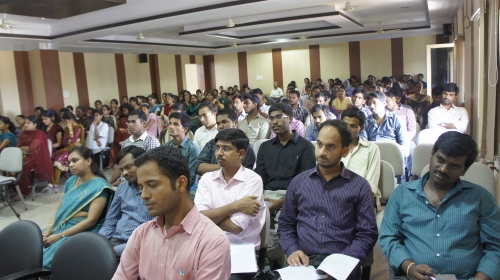
Finally he says that type 2 DM is due to an imbalance among hypothalamic peptides, the gastrointestinal tract, cytokines, nutrition, and life style factors, and has its origins in the brain and so is a disorder of the brain.
This lecture was well attended by around 200 attendees, mainly students and staff of Pharma colleges in and around Hyderabad, and was well received by students who expressed their thanks to RSC-DS.”
June – Pharma Talent Quiz
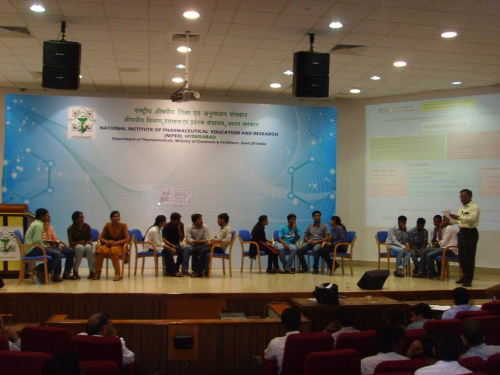
The Royal Society of Chemistry – Deccan Section ran a
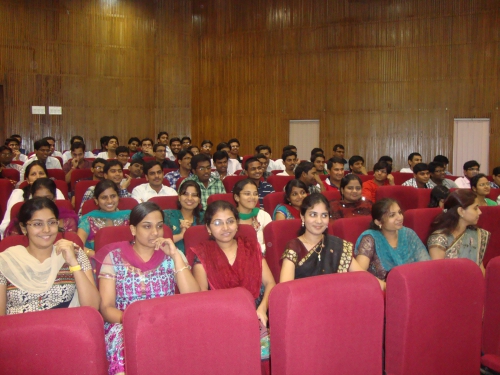
Pharmacy quiz competition for M.S (Pharm) students in association with the National Institute of Pharmaceutical Education and Research (NIPER), Hyderabad at NIPER-Hyderabad on the 18
th June 2012.
140 M.S (Pharm) students participated in the Pharma talent quiz, divided into four teams:
Team A -
Pharmacology & Toxicology
Team B -
Medicinal Chemistry
Team C -
Pharmaceutics
Team D -
Pharmaceutical Analysis
The aim of this program, organised by Prof. V. Peesapati and Dr. V. Jayathirtha Rao of the RSC-DS, was to give the students an opportunity to prepare for job interviews for their future career, so that they can face interviews with confidence.
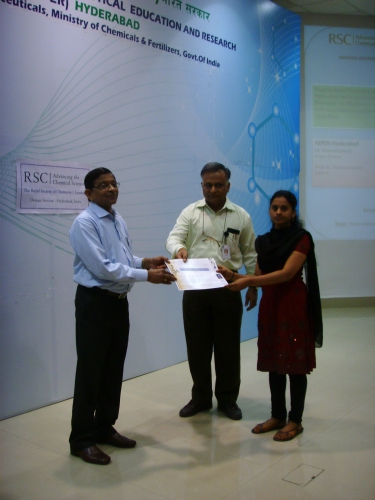
After three rounds of questions on Pharma and Medicinal Chemistry related topics, 16 Students were selected for the final quiz on the basis of initial screening (Slip test).
Team B were declared the Winners with the highest overall score and Team D were the runners up. The winners and runners up received prizes and certificates were given to all participants.
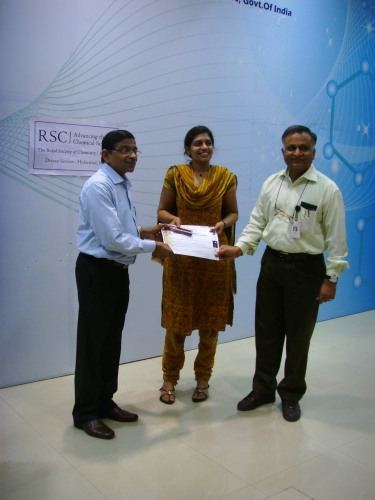
RSC–DS and the NIPER teaching staff commented on the team’s sporting spirit and good use of knowledge and logical deduction to work out their answers to quiz questions.
The events all concluded with tea and biscuits, and the RSC-DS honoured the guests.
